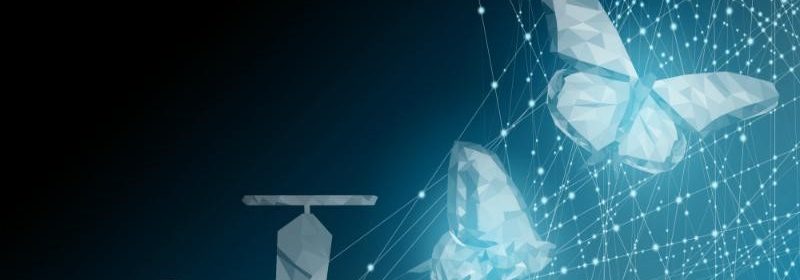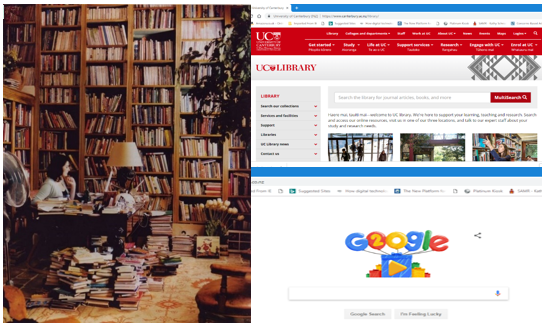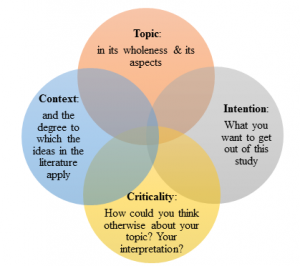Post-COVID-19 School Transformation: What Teachers, Communities and Nation can Contribute
COVID-19 pandemic crisis and its impact on rural primary schools investigated that health, social, economic and education would be hardly predicted at its identification in Wuhan, a Chinese city in November 2019. When China was struggling to control its spread in communities across the country, most of the countries would not have even imagined how the pandemic could destroy their mechanisms of health, education, business, economy and society. Millions of teasing TikTok videos, cartoon sketches, metaphoric texts and lyrics about COVID-19 in China would have been hardly bearable for Chinese civilians living across the world.
Unfortunately, COVID-19 without the restriction of the human sketched territory of countries on the planet reached elsewhere within the first three months of its identification. Many countries, particularly in Europe and America, unexpectedly suffered from the pandemic as early as the virus spread in those countries after China. The rapid spread of the virus in Asian countries particularly India in recent days has become a threat to Nepal because of the open border between Nepal and India. Moreover, the spread of COVID-19 in Nepal can presumably bring deadly days soon if the government is unable to strategically control the spread.
The impact of the pandemic can be observed in various sectors such as education, health, business, tourism and industries in Nepal. More than 7 million students have been observing lockdown when all the schools and ten universities have been shut down since March 2020. Although particularly few private schools and colleges in cities have been trying to reach their students and teach them in online classes, the majority of schools are unlikely to switch to online teaching and learning in absence of information and communication technologies. Where only 4% of the government schools and 22% of the private schools have a computer lab, and the majority of schools lack internet facilities, holistically approaching internet-based teaching and learning in schools can be an immature idea. Although it is estimated that about 70% of the total population use the internet, the majority of them (95%) use expensive mobile data for personal communications and only 5% of them, particularly in cities, use broadband internet. Moreover, the limited practice of online teaching and learning particularly in urban schools may widen the gap between rural and urban communities. However, the effort several national and local televisions and radios have made by broadcasting tutorials is appreciated by the public. Unfortunately limited or no specific programme for regulating school and university education in this crisis indicates the extent of governmental and institutional preparedness to mitigate the crisis. Even though the majority of teachers and students have limited access to internet facilities, some teachers have reported their experiences of practising online teaching and learning. This issue comprises of teachers experiences of using ICT tools for teaching and learning, challenges they faced in their practices and suggestions for post-COVID-19 schooling.
Prem Prasad Poudel offers his critical analysis of the pandemic influence on education particularly in Nepal and suggests ideas for post-crisis school transformation. He shares some ideas for alternative ways to conventional pedagogies to gradually revive school education.
Dr SM Akramul Kabir critically analyses the educational issues highlighted in Bangladesh during the pandemic crisis and suggests alternative ways to mitigate similar issues in general. Dr Thinh Le from Vietnam suggests some ideas for online teaching and learning. He specifically focuses on the community of learning model for online teaching and learning activities.
Dr Prem Phyak, Bhim Sapkota, Ramji Acharya and Dil Kumari Shrestha offer how teachers during COVID-19 crisis have learned to use various ICT tools in teaching and learning. Their interviews with teachers suggest how many other teachers can take advantage of this lock down to develop their professionalism by exploring national and international training opportunities offered in online classes.
Krishna Parajuli and Pushpa Raj Paudel share their experiences of using internet facilities for teaching and learning. Both authors illustrate how teachers have struggled to go on online teaching and what schools can do to transform them to revive and survive ahead.
Karuna Nepal explicates how students can manage their online and distance learning and how teachers can facilitate them to learn their courses. Hiralal Kapar has reported school teachers’ early experiences of using ICT tools to teach their students and gradual development of their confidence in teaching in online classes. Manish Thapa highlights how few university departments have switched their physical classroom to online teaching and learning during the pandemic crisis and how the practice can be adopted to transform traditional pedagogies.
Babita Sharma, one of the editors of this publication, discusses issues of social and family environment for children’s learning, how parents can create supportive social atmosphere for their children’s learning. She also suggests how family members can be teachers of their children to teach them dynamic life skills particularly relevant to social and cultural values.
2. Issues and possible options for teachers: A COVID-19 pandemic perspective. – Dr S M Akramul Kabir
3. Techniques of online teaching. -Dr Thinh Le
5. Expectations of post-COVID-19 era education in Nepal. – Krishna Prasad Parajuli
6. Crisis, teaching-learning via alternative means and ground reality – Pushpa Raj Paudel
8. Online class amidst COVID-19 lockdown. – Hiralal Kapar
9. Can distance learning be widely adopted at academic institutions? – Manish Thapa
We on behalf of the ELTChoutari publication would like to thank all the authors for your contribution to this issue. We appreciate your academic work and hope to receive your writing for the future issues of this publication. Your contributions will be read and valued across the world. Thank you, Babita Sharma Chapagain (associate editor of this issue) for your incredible support to follow the review process of this issue. Thank you, Jeevan Karki, Ganesh Kumar Bastola and Mohan Singh Saud for your cooperation in the review and copy-editing process. Thank you, Ekaraj Koirala, Jnanu Raj Paudel, Karuna Nepal, Nanibabu Ghimire and Sagar Paudel for your great help in reviewing several manuscripts. Your great help will ever be accountable.
This issue to the date has had many great people since its foundation. Their volunteer contribution in the early days and difficult situations provided a strong foundation for the proliferation of this online magazine. Prem Phyak, Shyam Sharma, Bal Krishna Sharma, Sajan Kumar Karn, Kamal Poudel and Hem Raj Kafle who established this digital magazine have ever been a source of inspiration and motivation for many other friends including the current editorial and reviewer team of this publication. Thank you for your frequent advice and continuous support.
Thank you, readers and followers of ELT Choutari for your invisible but invaluable support to this publication. Your comments and feedback have ever been a source of improving our works and we hope you will keep on supporting us that way.
Lead Editor of this issue
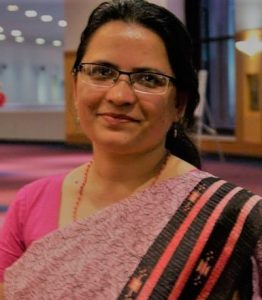
Babita Sharma Chapagain
Associate Editor of this issue
